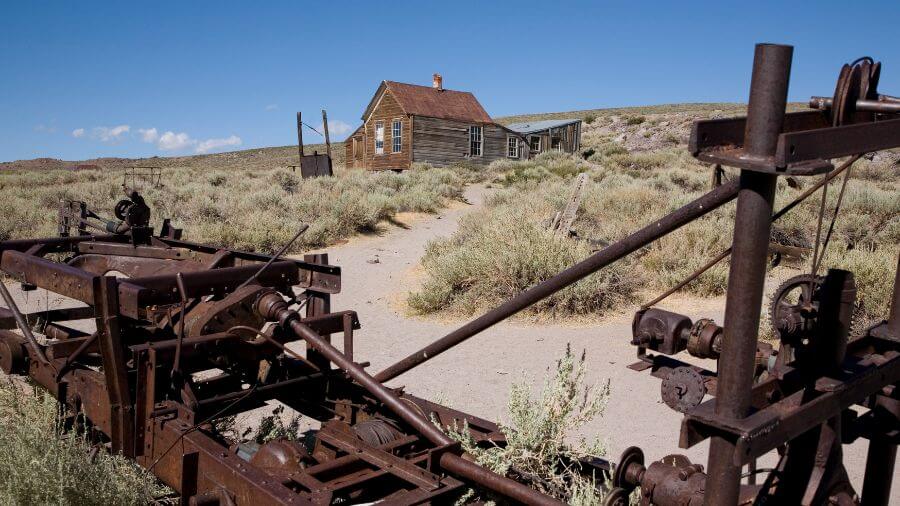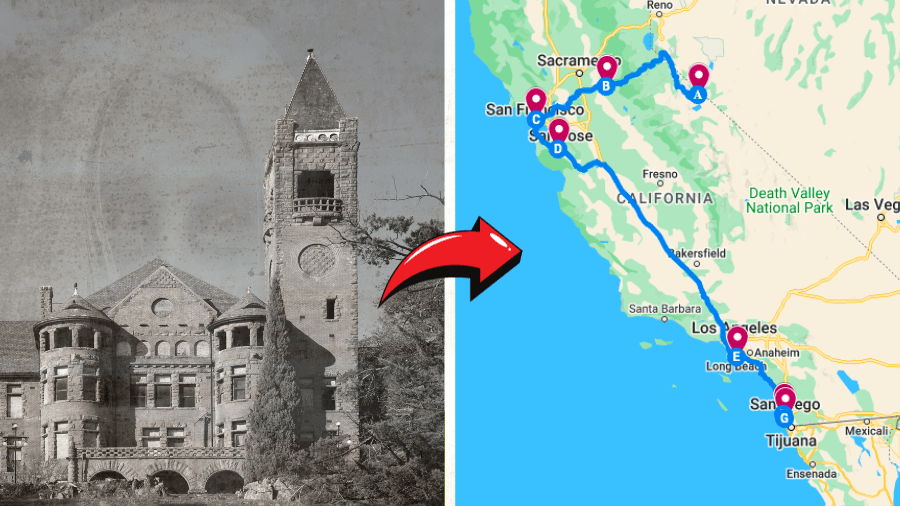Did you know that California has over 230 ghost towns?
Some are well worth a visit whereas others…not so much.
We’ve done all the hard work for you and come up with this ultimate list of the 13 most interesting ghost towns in California.
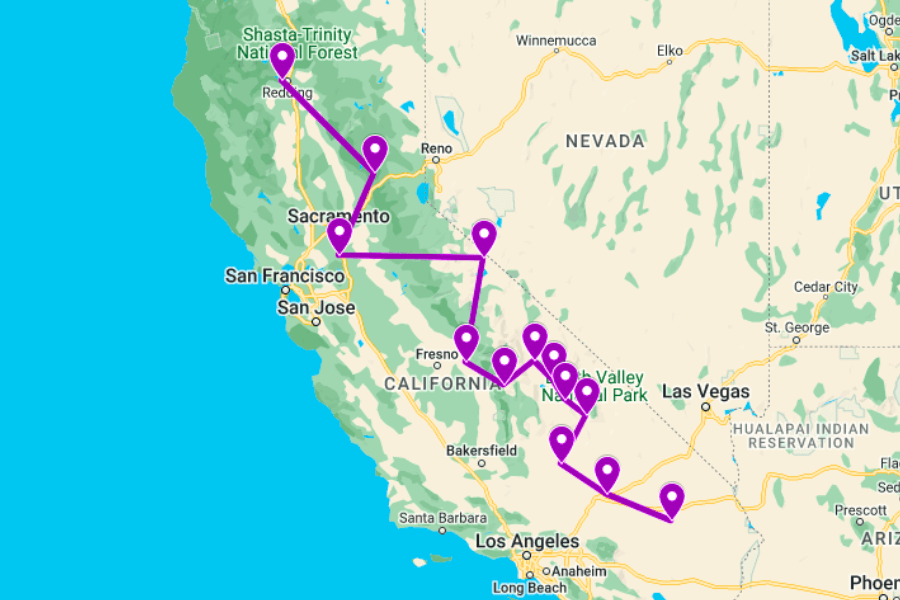
Are you brave enough to explore some of the spookiest places in California?
Each abandoned town holds secrets and stories that might just send shivers down your spine.
Read on if you dare to uncover the eerie tales and mysterious ruins that await in these deserted California towns!
1. Shasta State Historic Park
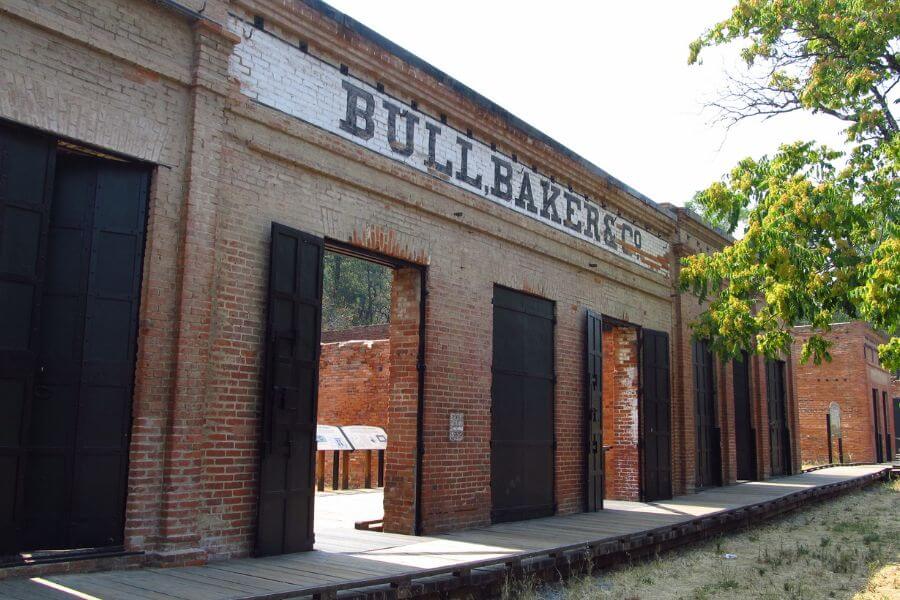
Shasta State Historic Park, located in northern California near Redding, is a preserved ghost town that captures the spirit of the Gold Rush era.
In the 1850s, Shasta was a bustling gold mining town, filled with miners hoping to strike it rich.
Today, you can walk through the remains of the town and see old brick buildings, a courthouse that’s now a museum and the ruins of what were once thriving businesses.
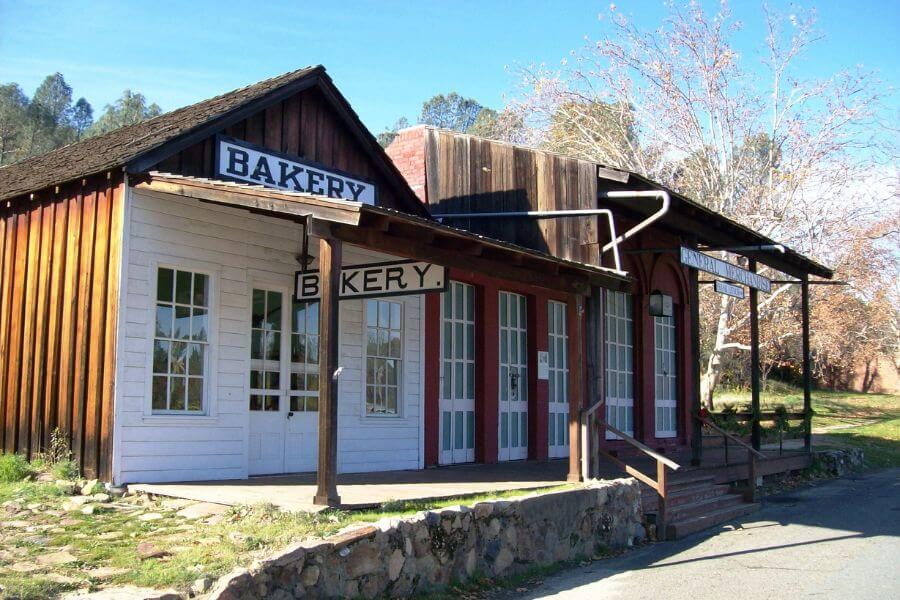
One of the most photographed sites is the old, red brick courthouse with its classic architecture.
Many of the buildings are partially in ruins, giving a haunting feel to the area, which adds to the ghost town experience.
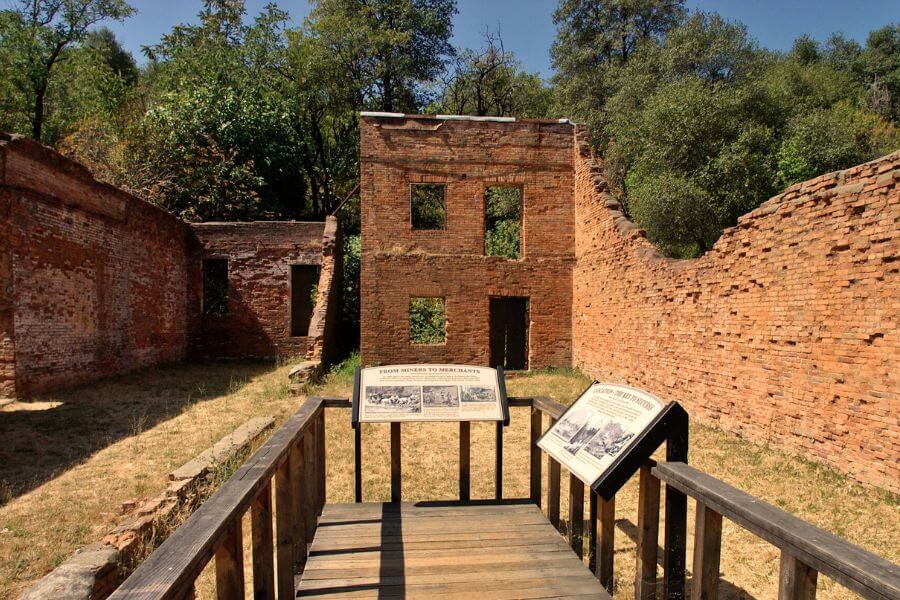
There are stories of ghosts haunting the town with both visitors and locals claiming to hear whispers and see shadows moving in the corners of the old structures.
Every year, many people visit this town to learn about California’s gold history and explore the eerie, quiet streets of Shasta.
2. North Bloomfield
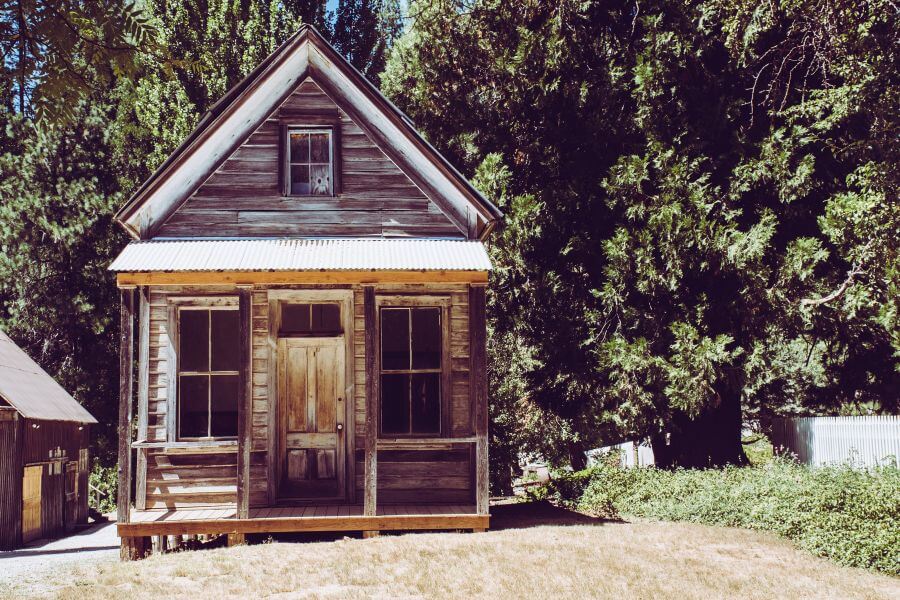
North Bloomfield, located within Malakoff Diggins State Historic Park near Nevada City, is a fascinating ghost town that takes you back to the days of the Gold Rush.
Founded in the 1850s during the peak of gold mining, this town was once bustling with miners and was known for its large hydraulic mining operations.
The town was originally named Humbug City (after people’s disappointment when they failed to find gold) but they later changed the name to North Bloomfield.
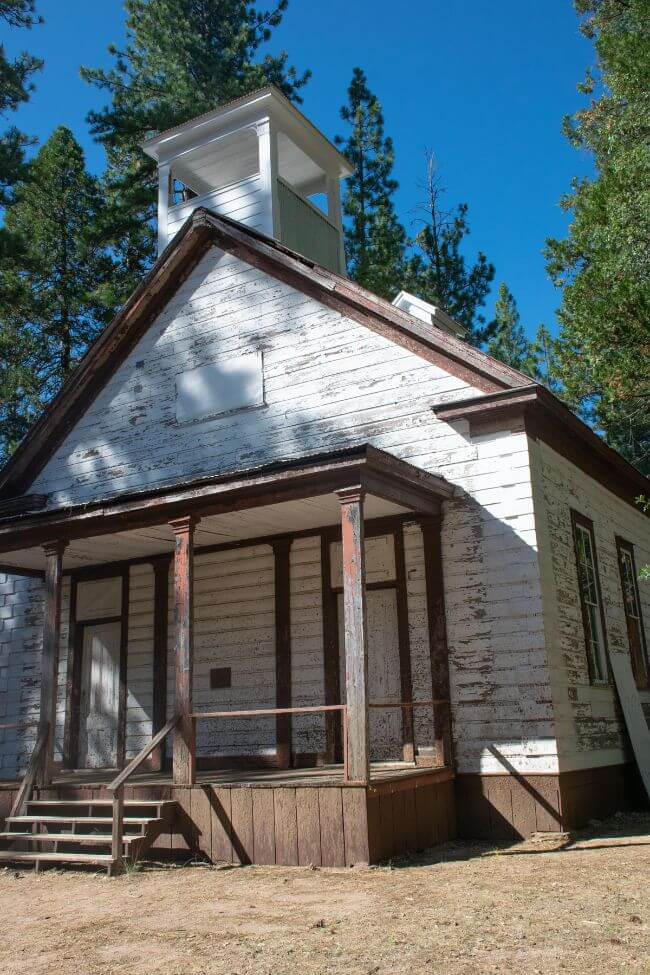
However, when hydraulic mining was made illegal in 1884, the town soon became abandoned.
Today you can explore the many buildings, some in ruins, that include homes, a schoolhouse, a church and the old general store.
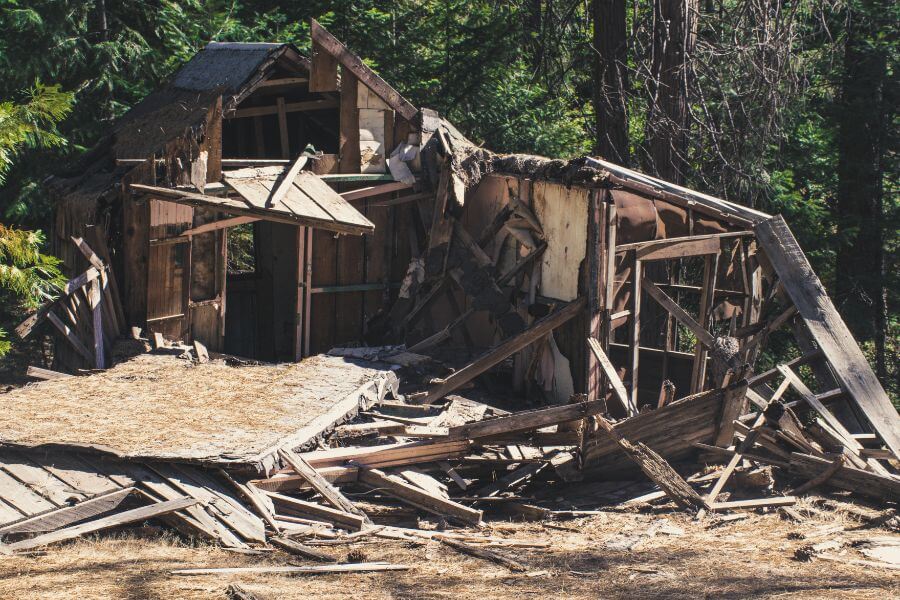
Walking through the town, you can almost hear the echoes of the past, as the park has done an excellent job of preserving the look and feel of the 1800s.
The deserted streets and old buildings give the town a mysterious, almost spooky atmosphere.
Tours are available for anyone wanting a deeper insight into the life of miners and the history of hydraulic mining.
3. Locke
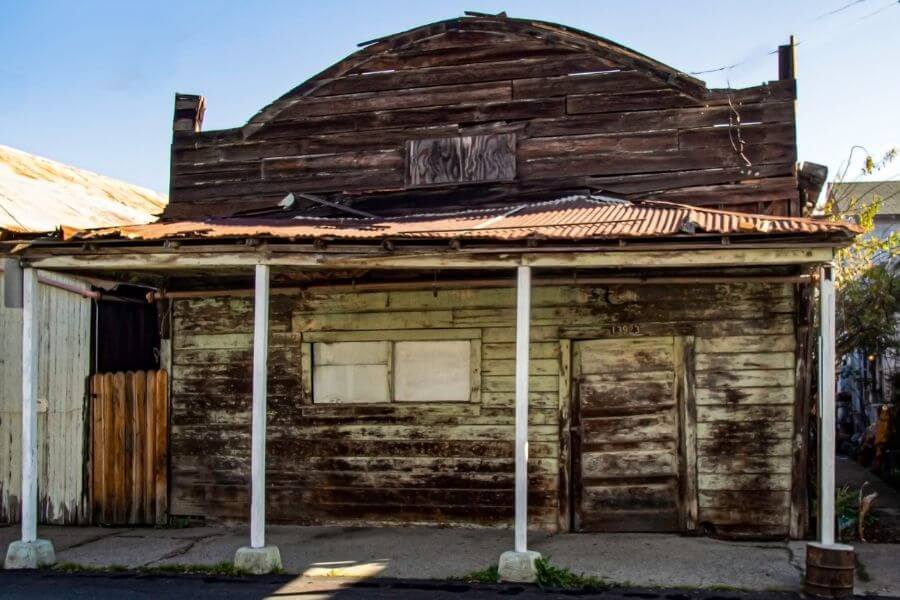
Locke is a unique almost-ghost town with a rich history unlike any other in the state.
This one is technically a living ghost town as there are still a few people living here however it’s mostly dilapidated.
It’s located in the Sacramento-San Joaquin River Delta, about 30 miles south of Sacramento.
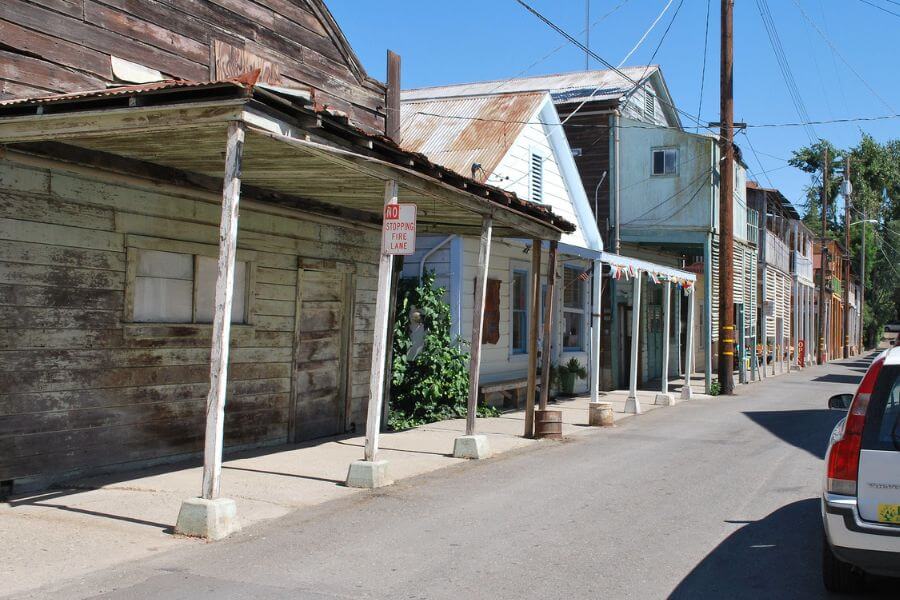
Locke was built in 1915 by Chinese immigrants who were originally laborers on the nearby farms.
It’s the only town in the United States built exclusively by Chinese people for Chinese people.
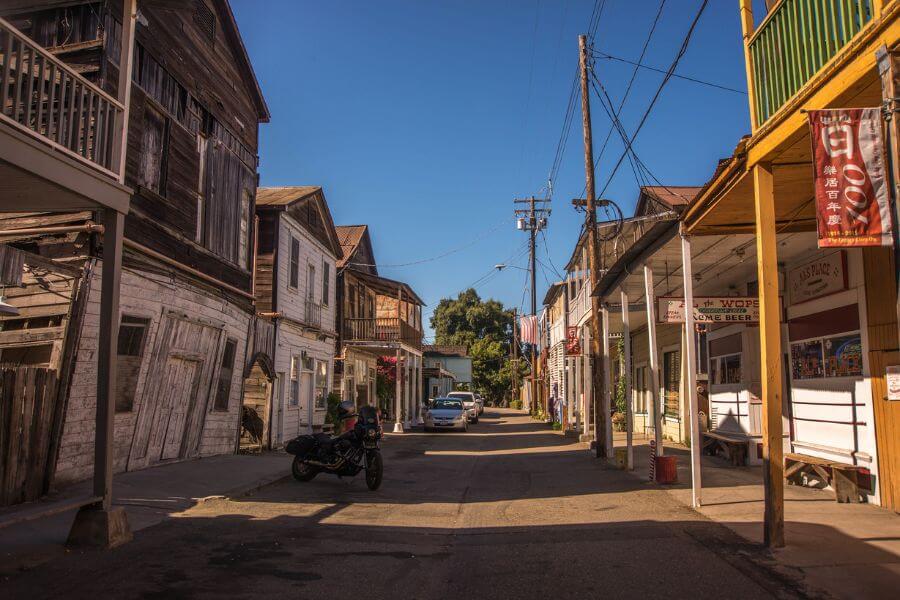
You can stroll down the eerie sidewalks and see the original buildings, some still standing, like the old grocery store, the boarding house and some restaurants.
Many people claim the town is haunted and it definitely feels like it with all the dilapidated buildings!
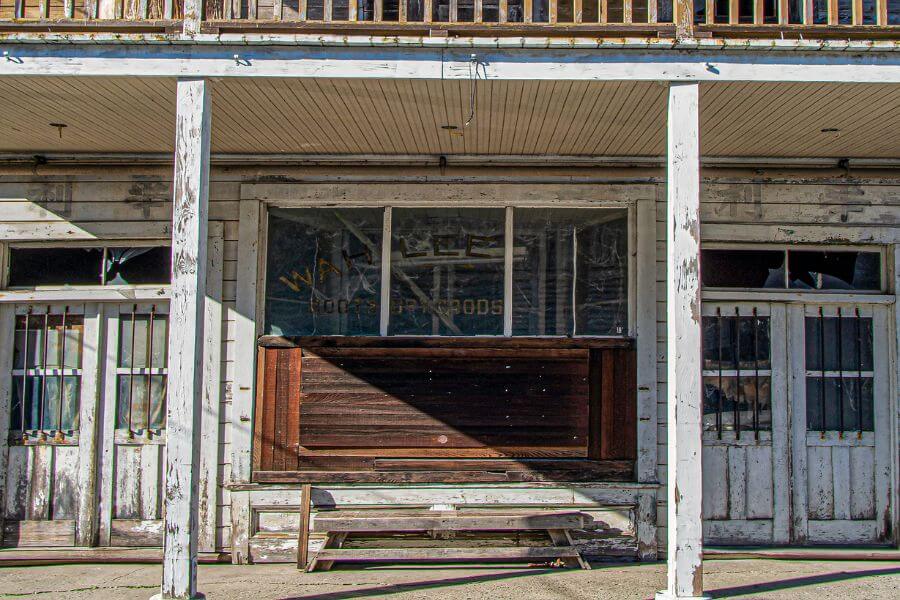
The town also has a museum that offers insights into the daily lives of its early residents and their contributions to the area.
Fun fact: Locke was known during the Prohibition era for its speakeasies and gambling halls which drew visitors from all over California.
You can even go inside the old gambling parlor today!
4. Bodie
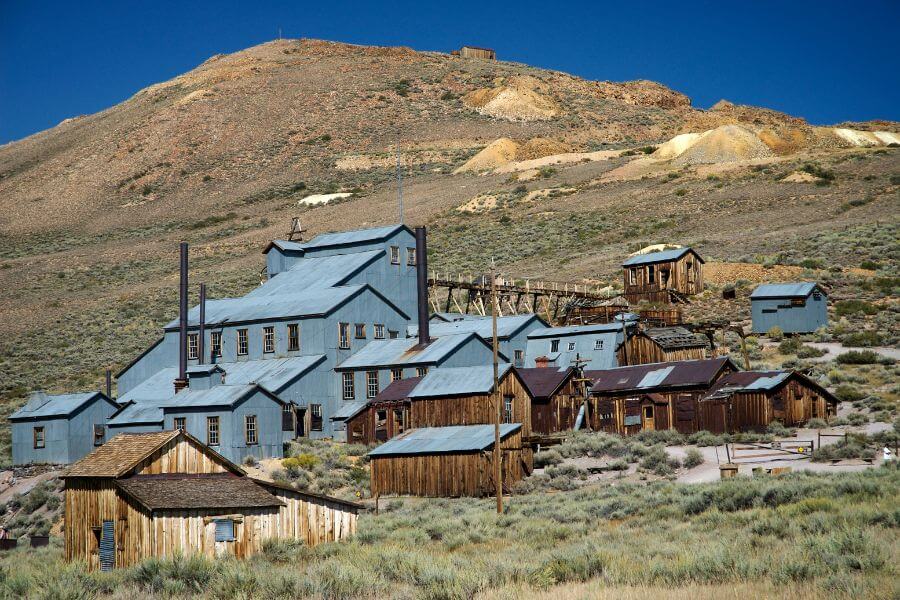
Bodie is a famous ghost town, sitting in the Sierra Nevada mountain range, east of Yosemite National Park.
It started as a small mining camp in 1859 but grew to a town of around 8,000 people by 1880 after a huge gold discovery.
At one point, the town featured over 2,000 structures but due to multiple fires, only 10% of the original structures survived.
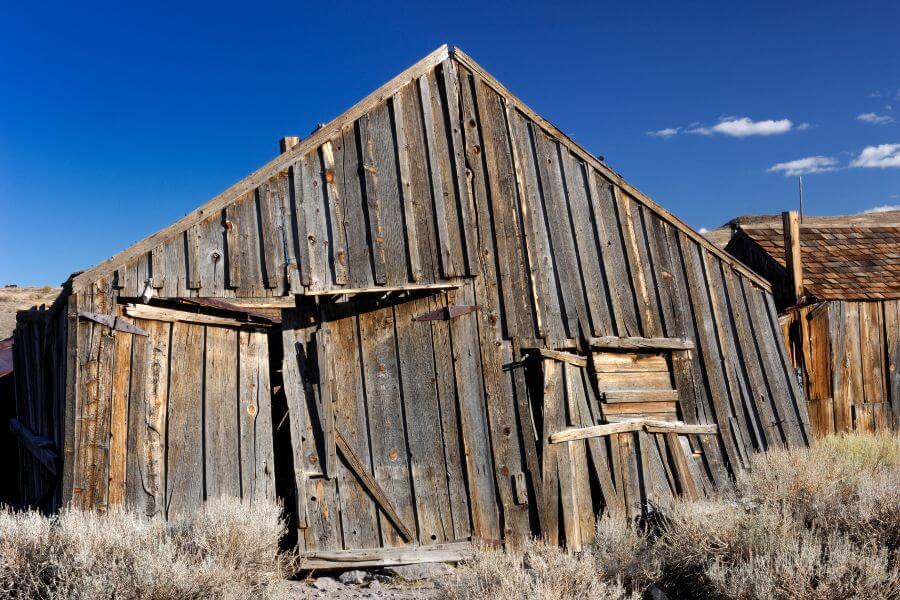
Today, Bodie is a State Historic Park, preserved in a state of “arrested decay” where you can see over 100 standing buildings including homes, a church, a schoolhouse and the old general store.
Walking through the town, you can peek inside the buildings and see tables, chairs and other belongings left exactly as they were, giving a real snapshot of life in a 19th-century mining town.
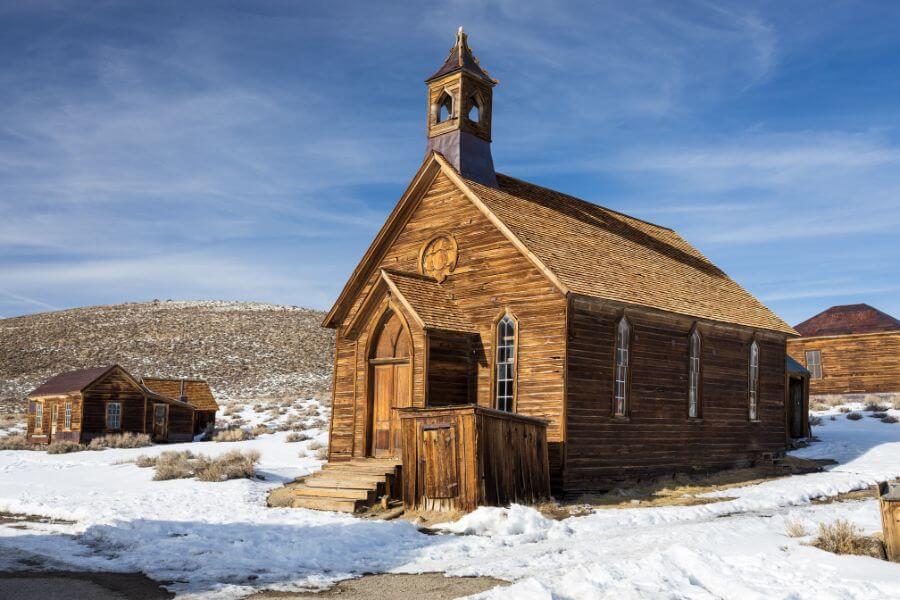
Bodie is also famous for its legends of ghosts and hauntings with visitors often speaking of strange sounds and ghostly figures in the windows.
One of the most intriguing stories is about the “curse of Bodie” which brings misfortune to anyone who tries to take any artifacts from the town.
5. Wonder Valley
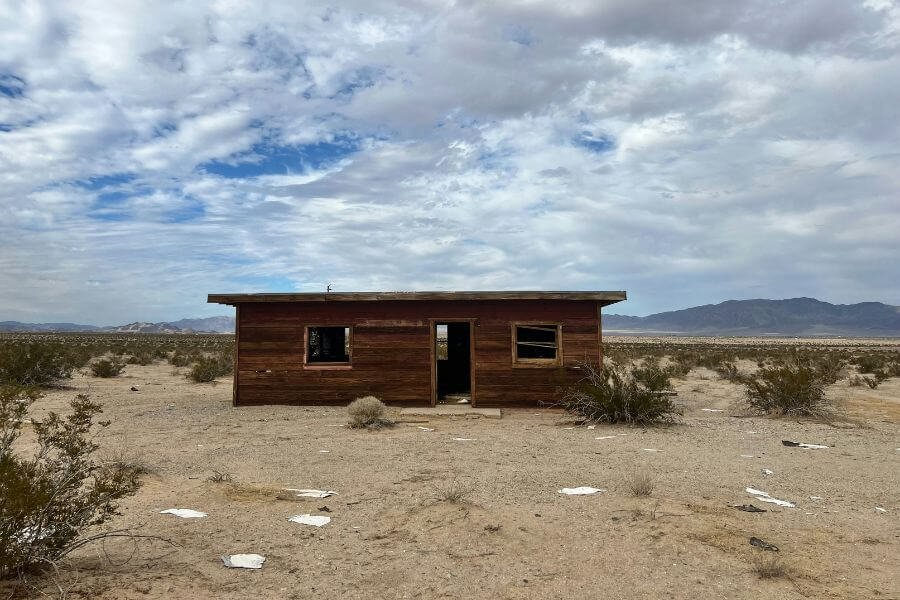
Wonder Valley is a ghost town located in the Mojave Desert, not far from the town of Twentynine Palms.
This area became popular in the 1950s due to the Small Tract Act which allowed people to claim small plots of land in an effort to develop the desert.
Many people built small cabins on these plots, but over time, as owners left or passed away, many of these structures were abandoned.
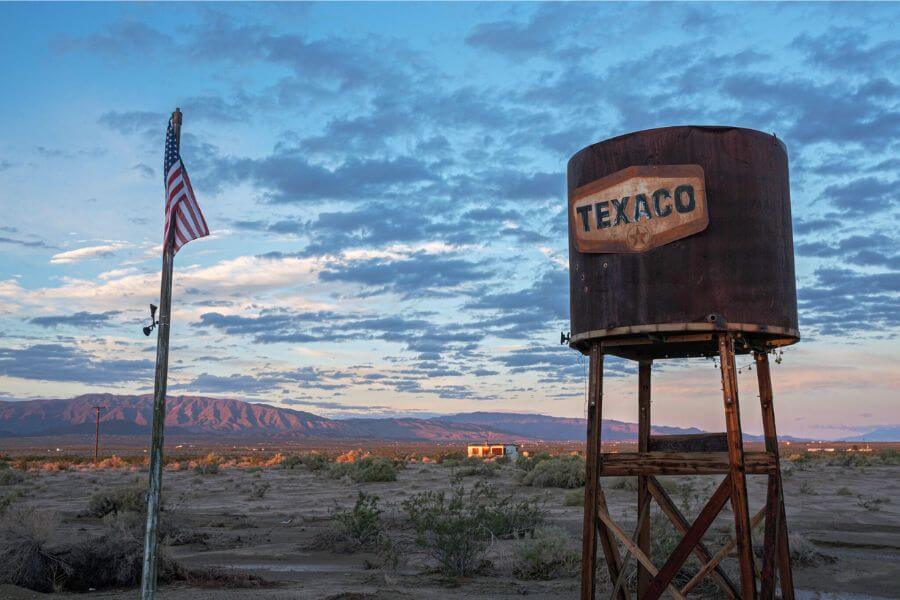
Today, visitors to Wonder Valley can see these scattered, often decaying cabins across the wide-open desert landscape.
Each cabin tells a story of a different time with many still containing old furniture and personal items left behind.
The vast desert and rugged mountains in the background make it a picturesque place to visit even though all the abandoned houses give it a spooky feel.
6. Silver City
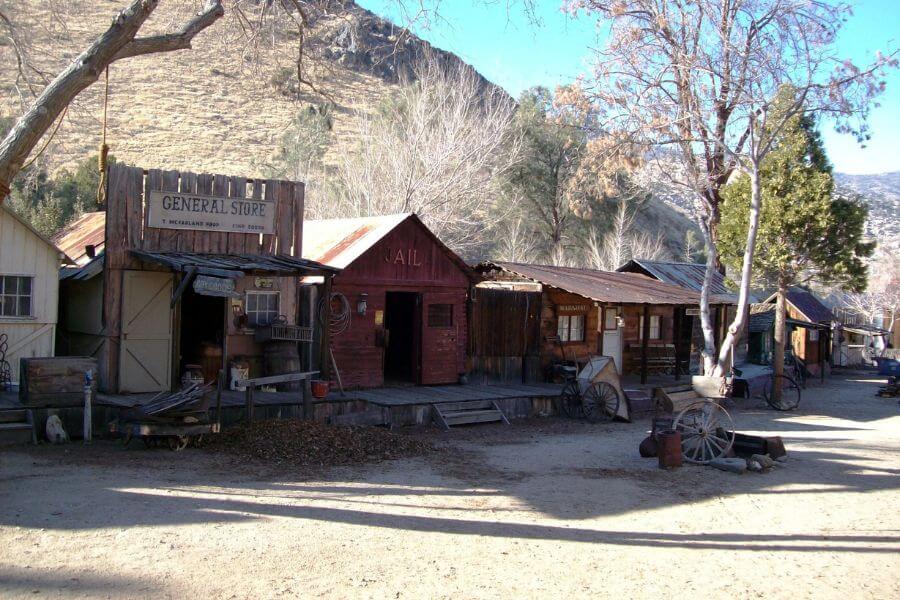
Silver City is a ghost town located in Bodfish, near Lake Isabella.
This town is actually a collection of old buildings from other ghost towns in the area including Whiskey Flat, Keyesville and old Isabella.
To save these historic structures from destruction, they were moved to Silver City.
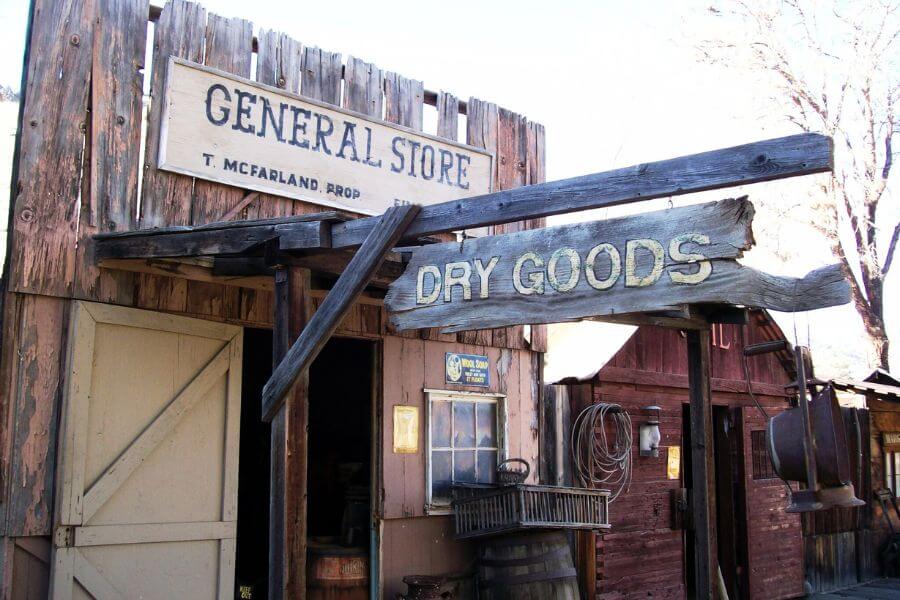
Today, the entire town is preserved as a historic site and you can explore an array of old buildings that paint a picture of life during the mining era.
The town features a collection of authentic 19th-century homes, a schoolhouse, a general store and even a saloon.
Each building contains artifacts and furnishings from the period which offer a glimpse into the daily lives of the miners and their families.

Silver City is said to be haunted with stories of visitors hearing whispers and seeing fleeting shadows around the old buildings.
For this reason, the town is a popular destination for ghost hunters!
7. Kearsarge
Kearsarge is a lesser-known ghost town located in the eastern Sierra Nevada, not far from the town of Independence.
It was named after the USS Kearsarge and sprang up in the late 19th century when a new mill was opened to process ore from the nearby mines.
The town quickly grew as people flocked to the site during the mining boom times.
Kearsarge didn’t last very long as many of its buildings were destroyed by an avalanche in 1867 which caused much of the population to leave almost overnight.
Today, what remains of Kearsarge are mainly foundations and scattered debris with a few structures still standing.
It doesn’t get that many visitors so you may have the entire town to yourself!
It can feel pretty eerie though as there isn’t much remaining.
The area is surrounded by the natural beauty of the Sierra Nevada with views that stretch across the Owens Valley.
8. Cerro Gordo
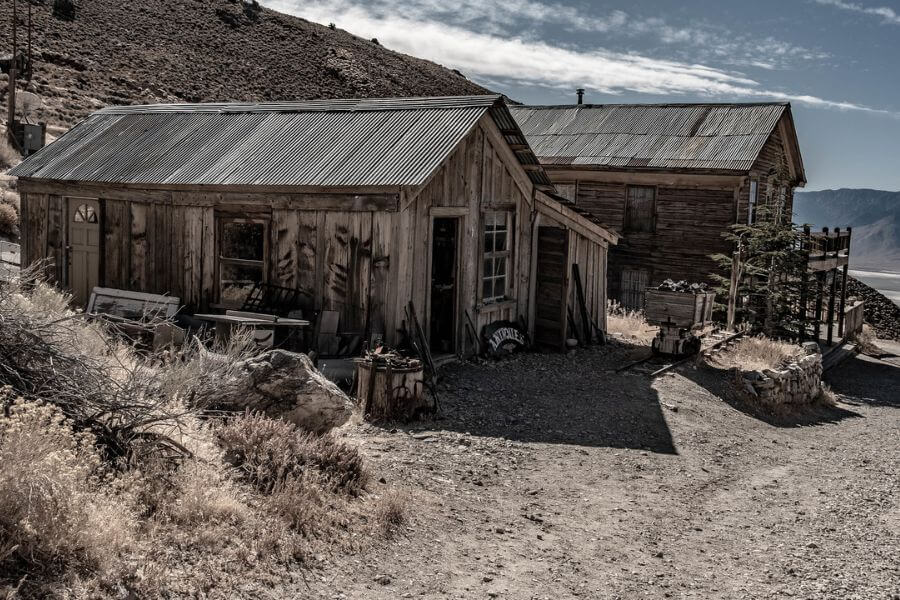
Cerro Gordo, located in the Inyo Mountains of California, is a ghost town with a rich history dating back to 1865 when it was first established as a silver mining camp.
This town quickly became the largest producer of silver and lead in California, contributing significantly to the growth of Los Angeles through its mineral wealth.
It was known as a ‘wide-open town’ which basically just meant that it was largely lawless and there are many tales of fights & battles within the town.
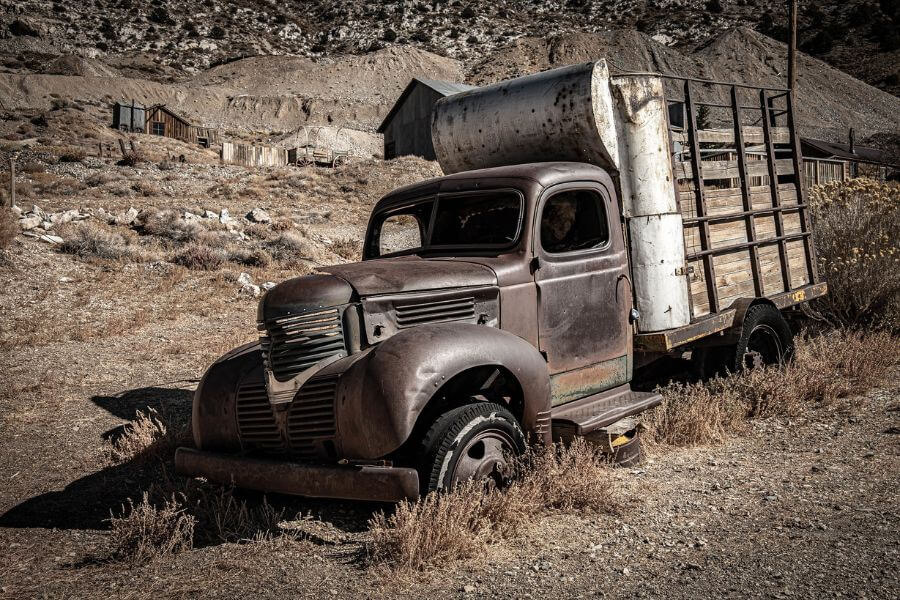
You can even see bullet holes in the saloon!
Today, you can still explore various preserved buildings including the general store (which is now a museum), the bunkhouse and the remnants of the old smelting works.
The town also offers breathtaking views of the surrounding desert and the Sierra Nevada mountains.
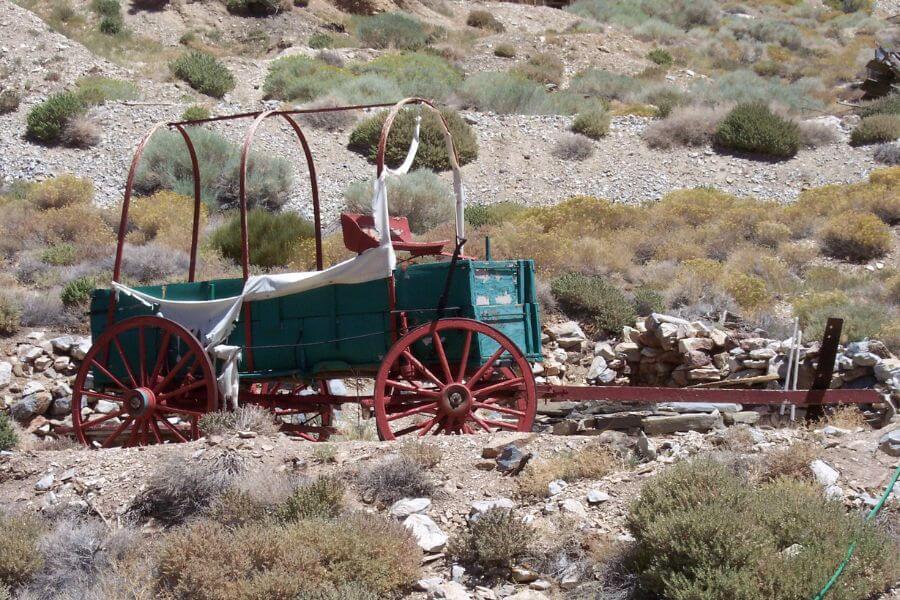
Cerro Gordo is known for its ghost stories with the most famous being the tale of the “ghost of the hotel” where many people claim to hear unexplained noises and see apparitions.
The town’s isolated location and preserved state make it feel like stepping back in time to the Wild West.
Cerro Gordo is privately owned but offers tours that educate visitors about its mining history and ghostly legends. You do need to book ahead though!
9. Darwin
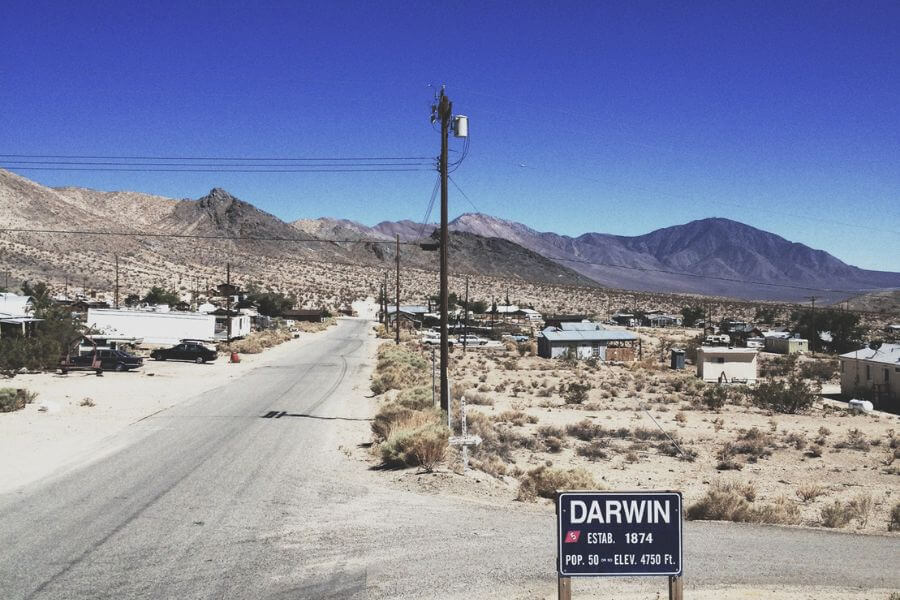
Darwin is a ghost town located in the remote desert of Inyo County, near Death Valley National Park.
It was founded in 1860 during a silver mining boom and quickly grew as miners poured into the area seeking fortune.
At its peak, Darwin had a population of 3,500 people, 20 mines and was a thriving community with its own post office, school and several businesses.
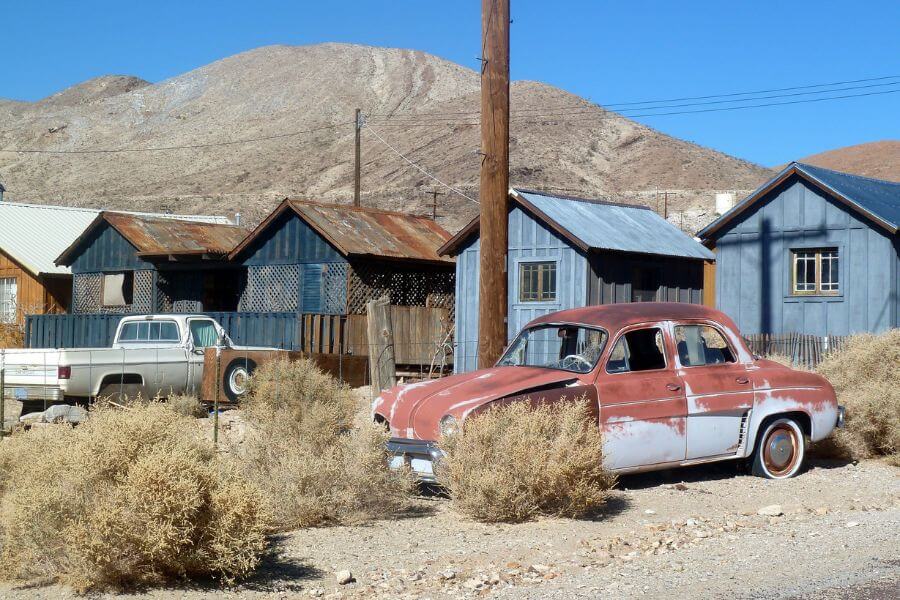
However it did have a reputation for being a rowdy and somewhat violent town.
Today, visitors to Darwin can see a collection of abandoned buildings, rusty old cars and mining equipment scattered around the dusty landscape.
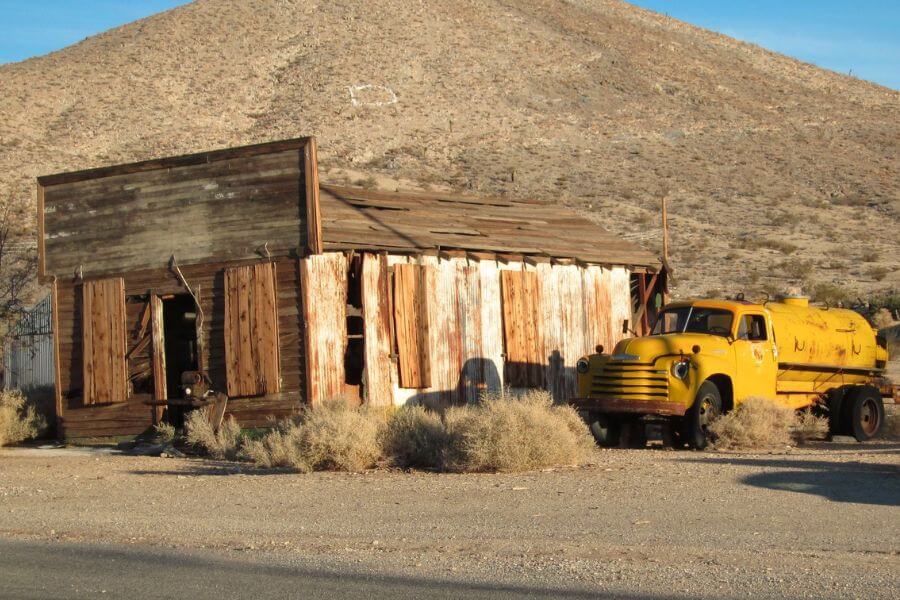
Darwin is generally considered a ghost town as it’s largely been abandoned but approximately 35 people still live in the area.
The empty buildings, rusty mining machinery and silent streets of Darwin give it an eerie feel that sparks the imagination.
10. Ballarat
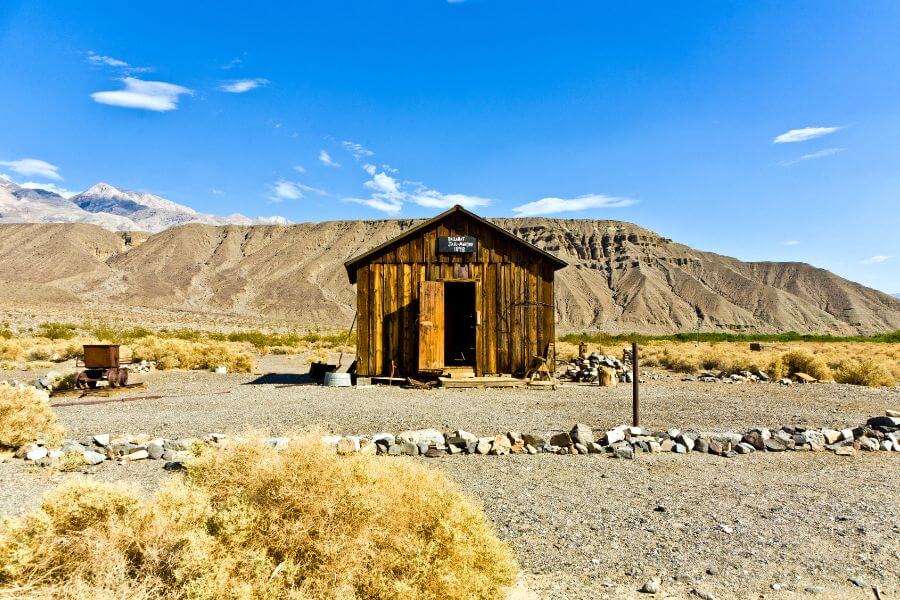
Ballarat is a ghost town nestled in the Panamint Mountains, not far from Death Valley National Park.
It was founded in 1896 as a supply point for the mines in the surrounding mountains, especially during the gold mining boom.
At its peak, Ballarat had about 500 residents and featured a post office, a school, hotels, a jail and 7 saloons.
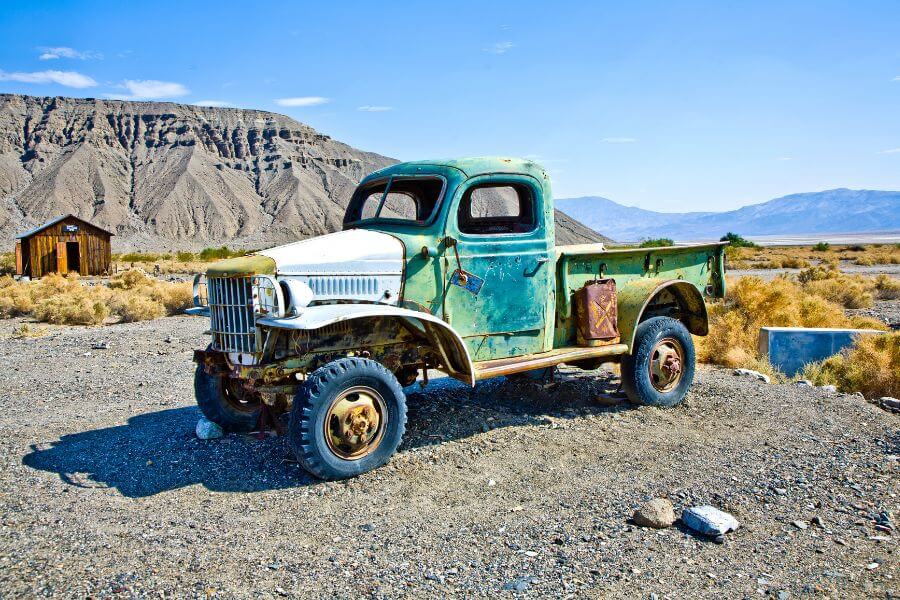
However, when the nearby Ratcliff Mine closed, Ballarat fell into disrepair as people left.
Even after its downfall, Ballarat played host to some famous figures.
These include Frank ‘Shorty’ Harris as well as Charles Manson, whose graffiti can still be seen on the old Dodge Power Wagon near the general store.

Today, what remains of Ballarat are a few old buildings including the general store and the ruins of other structures that whisper tales of the past.
The general store still operates as a tourist shop where you can buy souvenirs and learn more about the town’s history.
Ballarat’s desolate landscape and history of hard luck give it an eerie atmosphere.
11. Randsburg
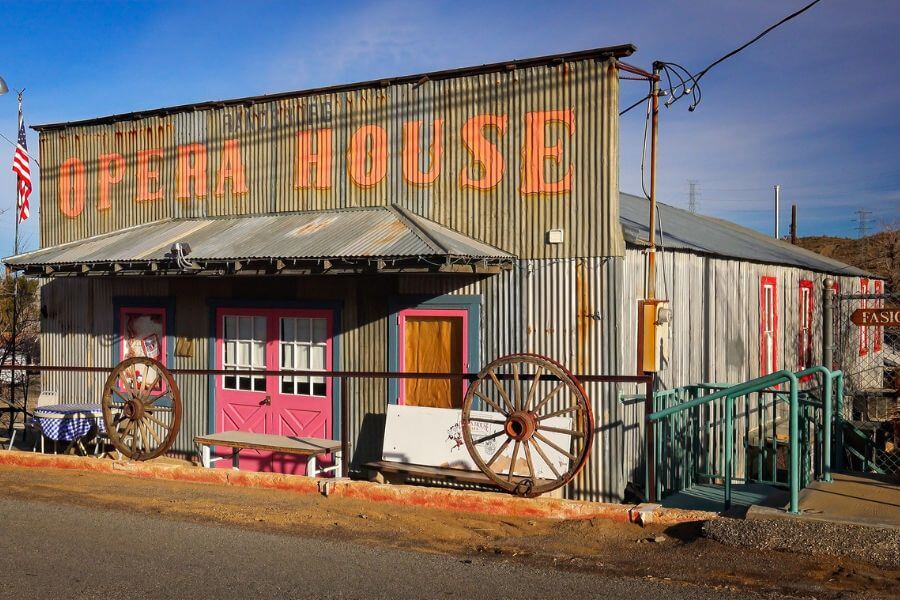
Randsburg, located in the Mojave Desert in Kern County, is often referred to as a “living ghost town” because it still has a small resident population of around 60 people.
The town sprang to life in 1895 during a gold mining boom, attracting thousands of residents with the promise of riches buried in the desert hills.
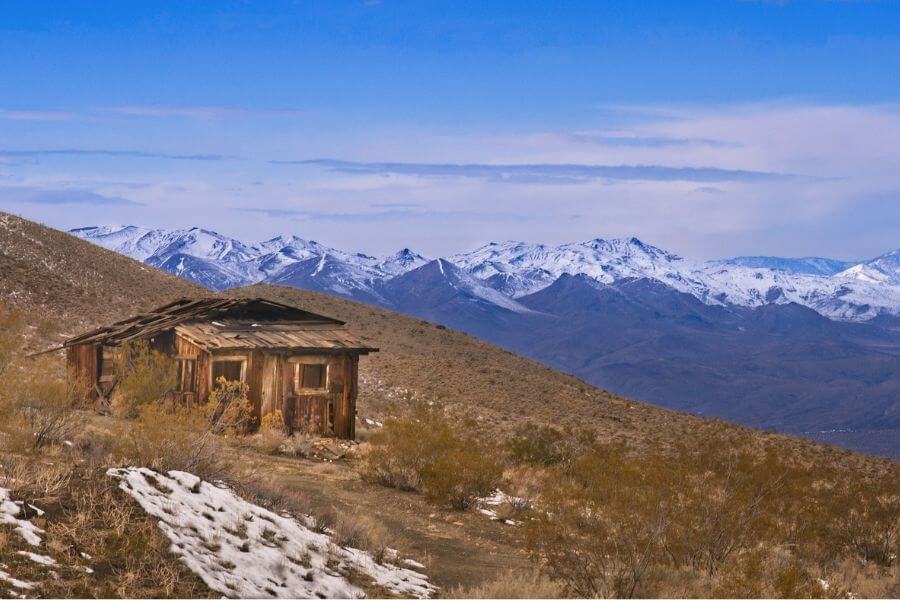
At its peak, Randsburg boasted a bustling main street, complete with hotels, stores, schools and saloons.
Today, you can stroll down that same main street and see many of the original buildings which now house antique shops, a general store and a museum filled with local artifacts.
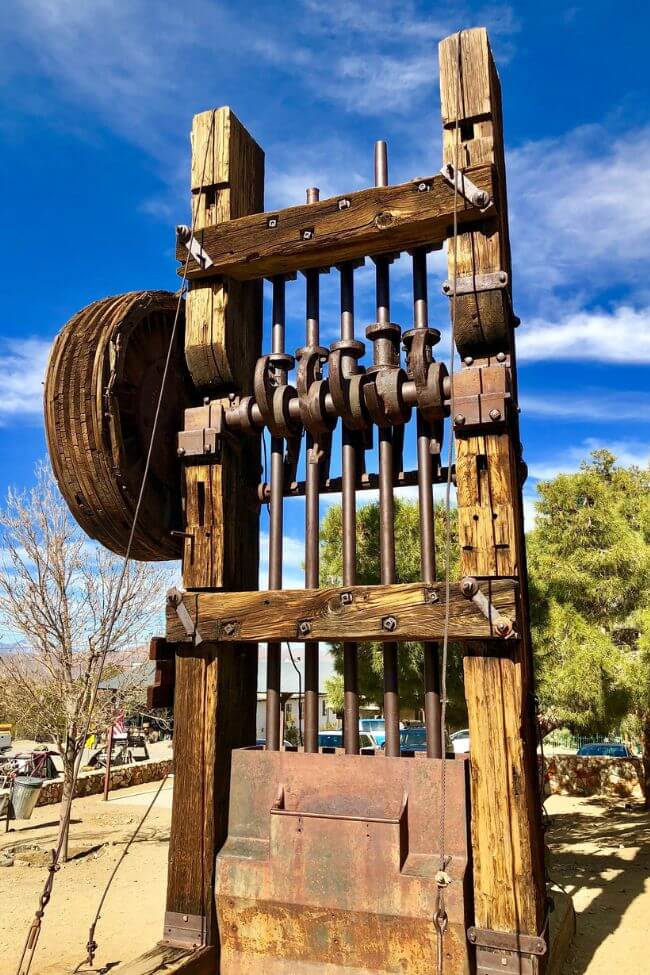
The old jail and the White House Saloon are popular spots and really give visitors a glimpse into the town’s wilder days.
Randsburg is unique in that it offers a day in the life of a 19th-century mining town while still being inhabited and loved by its current residents.
12. Calico
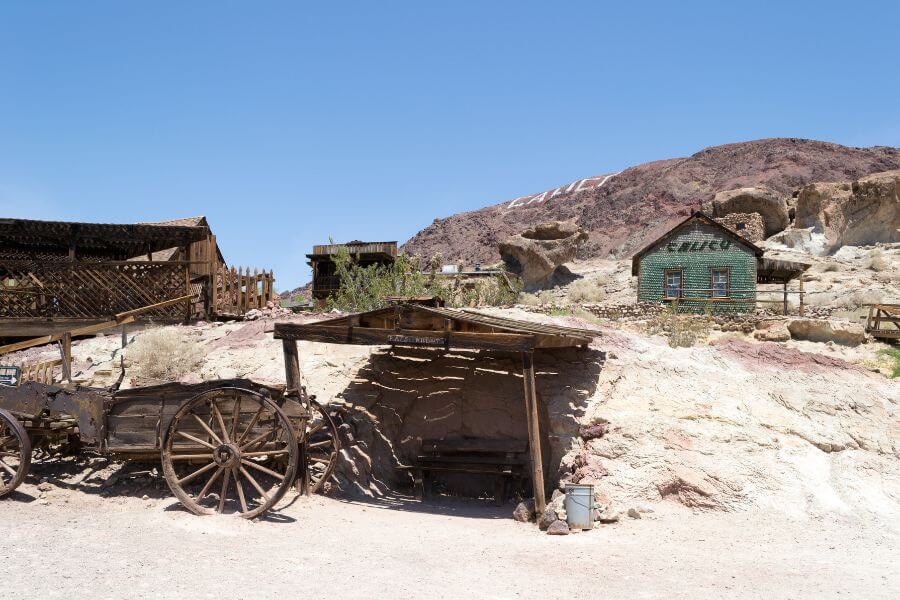
Calico is a well-known ghost town located in San Bernardino County, originally founded in 1881 as a silver mining town.
At its peak, over 500 mines produced a large amount of silver which made Calico a bustling and prosperous town with over 1,200 residents.
However, by the end of the 19th century, the value of silver had declined which ultimately led to the town’s abandonment.
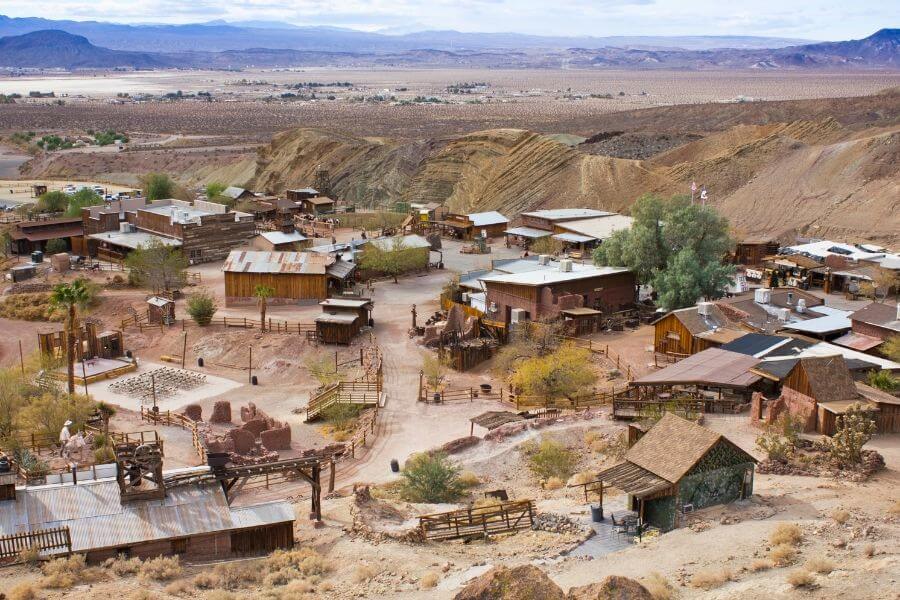
Today, Calico is a popular tourist destination restored in the 1950s to look much like it did in its heyday, complete with shops, restaurants and old homes.
You can explore the restored schoolhouse, the fire station, the old post office and mines, and even take a ride on a historical railroad.
They even have one house that is made completely out of bottles!
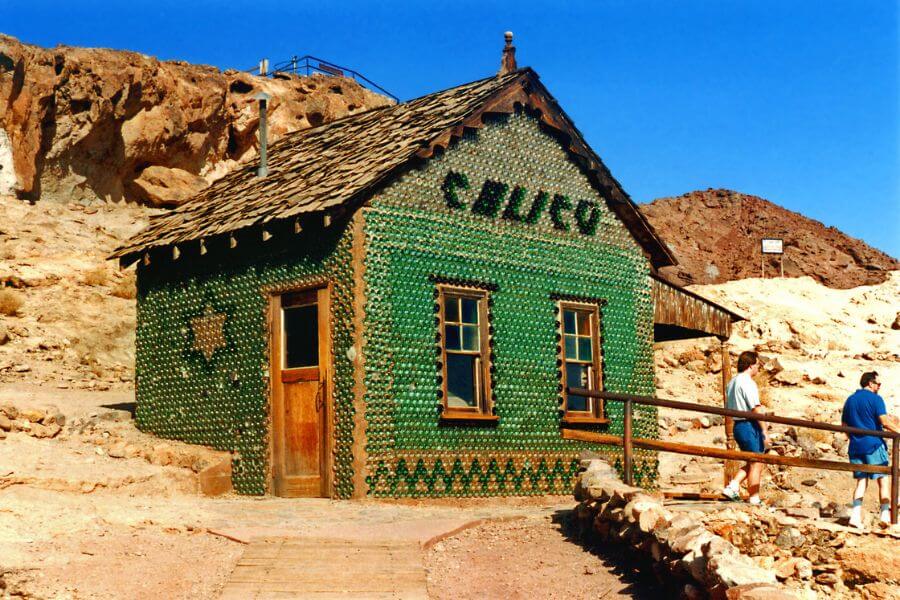
Calico is said to be haunted with legends of spirits lingering in the old buildings. It’s a bit spooky!
The town also hosts various events throughout the year including ghost tours and reenactments which make the history come alive.
13. Amboy
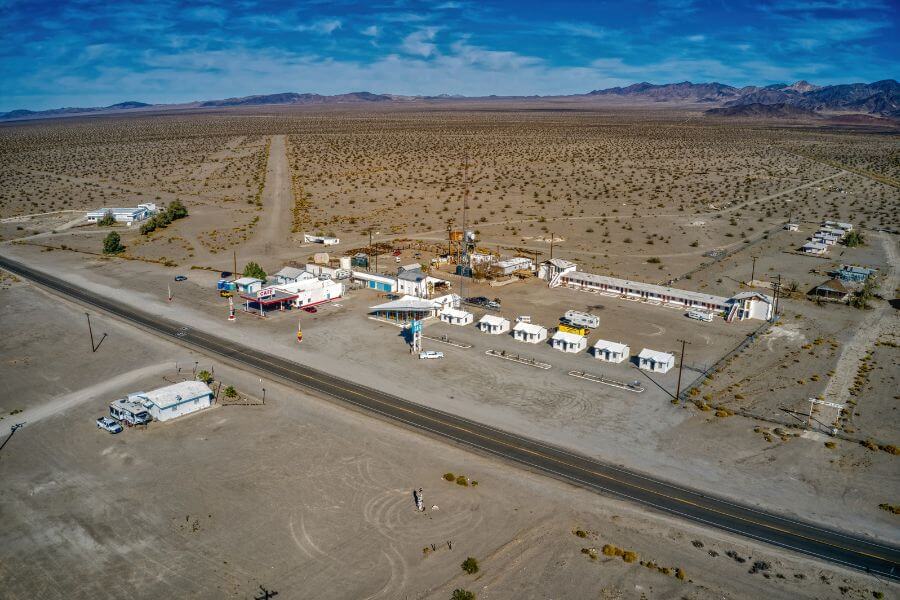
Amboy is a ghost town located in the Mojave Desert in Southern California.
You’ll find it along the historic Route 66.
Founded in 1858 as a stopover for wagon travelers, Amboy thrived in the mid-20th century when Route 66 was the main highway connecting the Midwest to California.
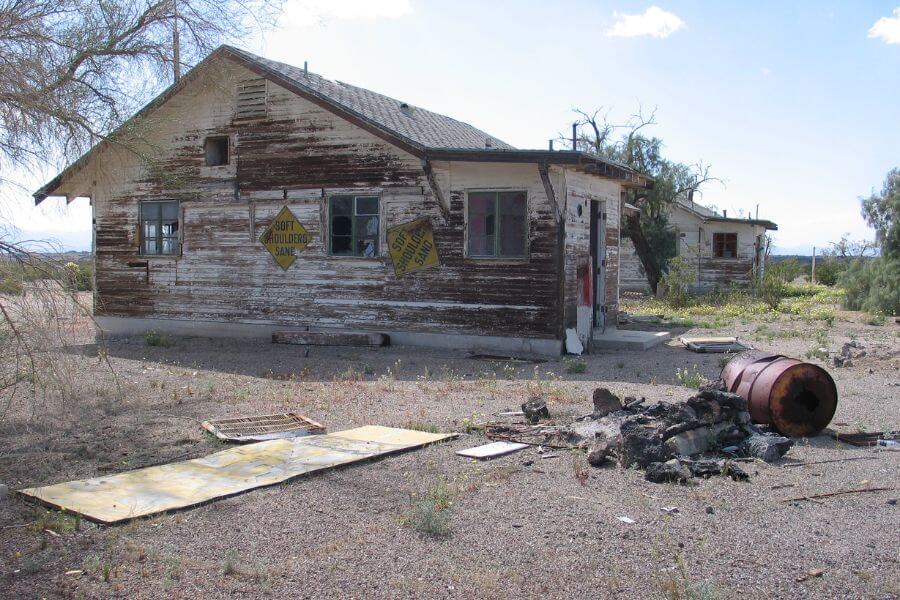
However, the town became abandoned in the second half of the 20th century after the new Interstate Highway System opened.
The town has been sold a few times and at one point, it even ended up on eBay!
Amboy features the famous Roy’s Motel and Café, a classic example of mid-century Googie architecture that once served as a bustling spot for travelers needing a break.
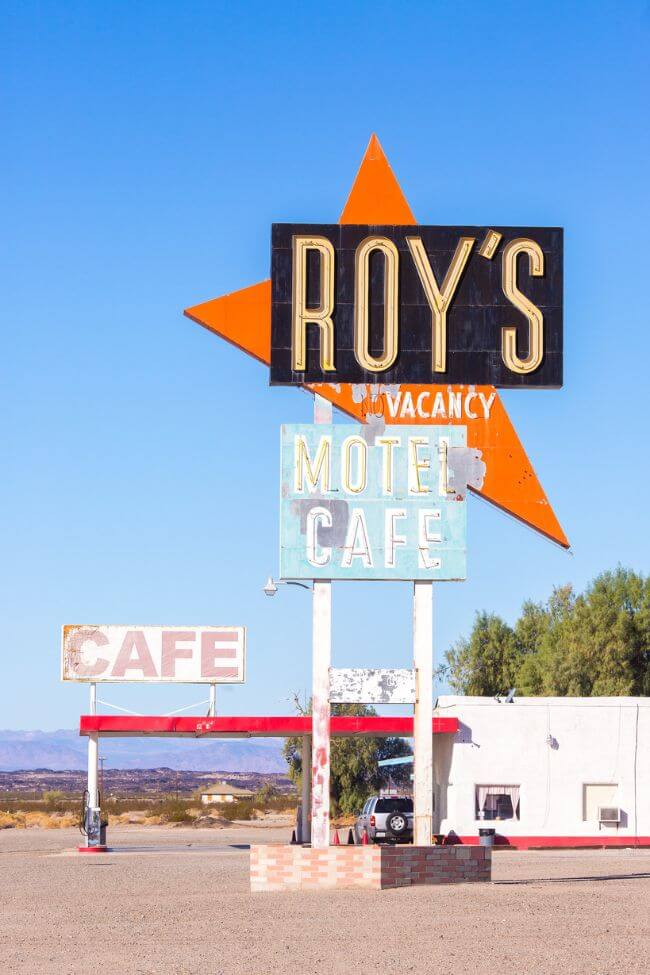
Today, visitors to Amboy can see the preserved Roy’s sign, the gas station and the café, which are often photographed icons of the old Route 66.
The current owner has put a lot of effort into revamping the town and has even recently re-opened the old service station and the cafe.
The town also includes an old post office and the remains of the schoolhouse.
The desolate and worn appearance of the buildings against the desert backdrop gives Amboy an eerie and mysterious atmosphere.

